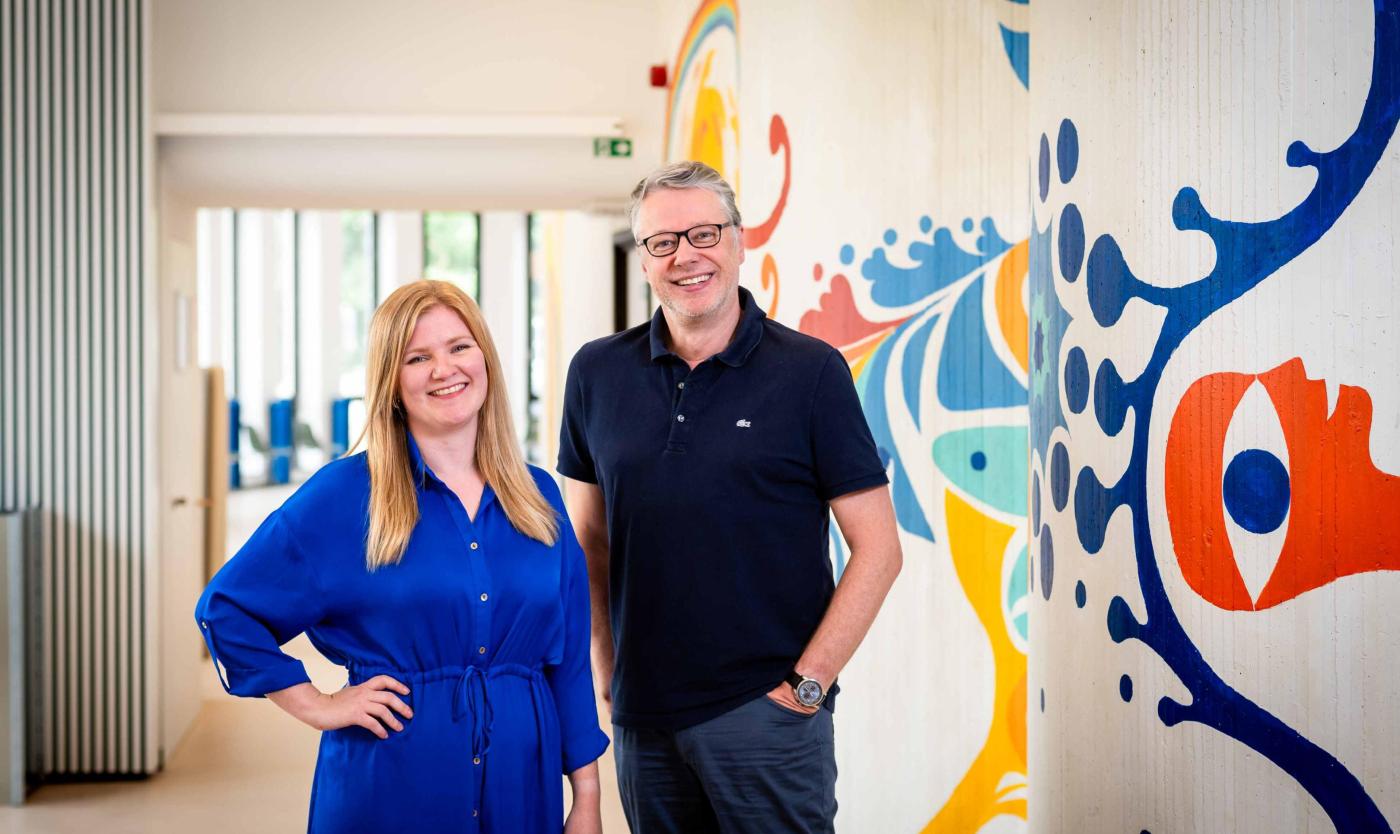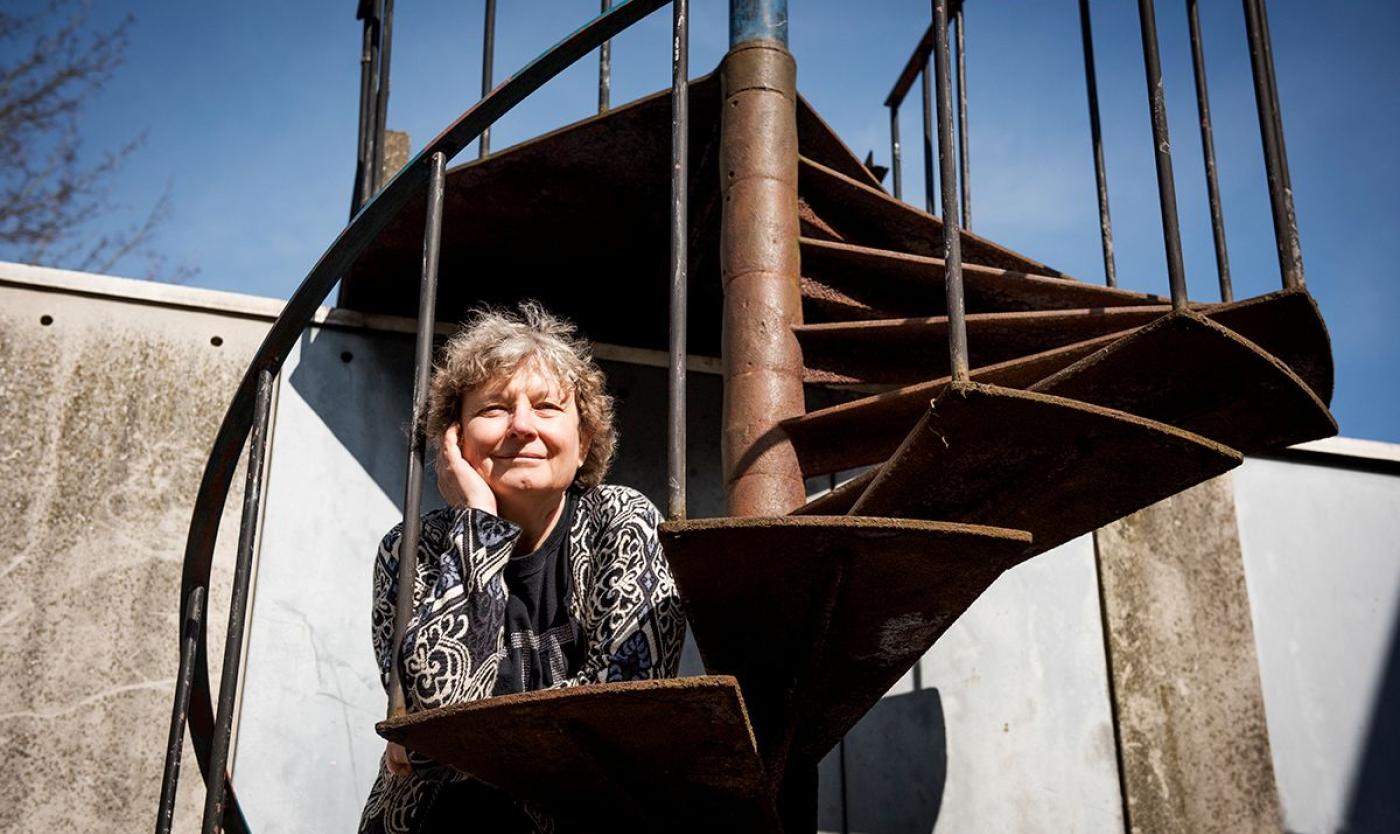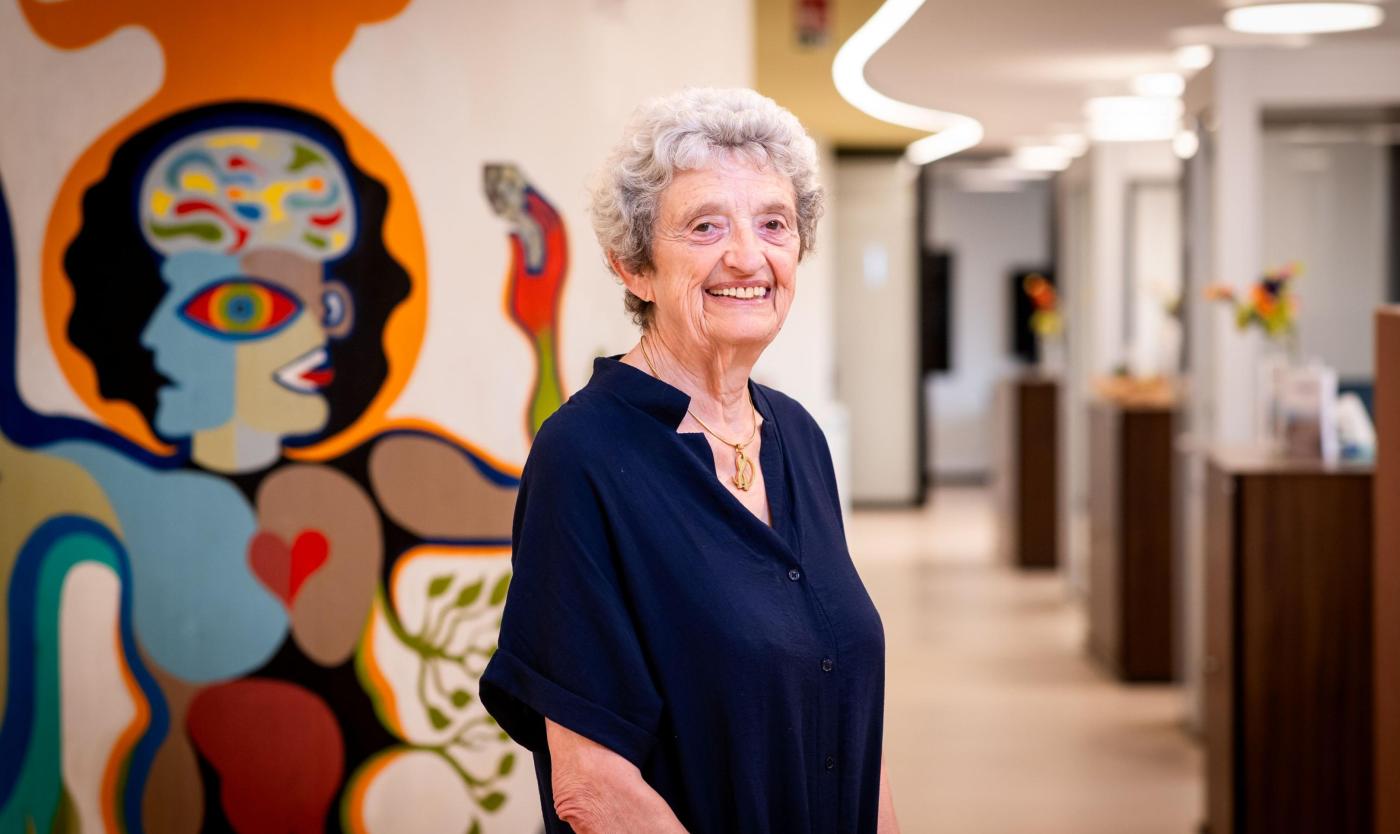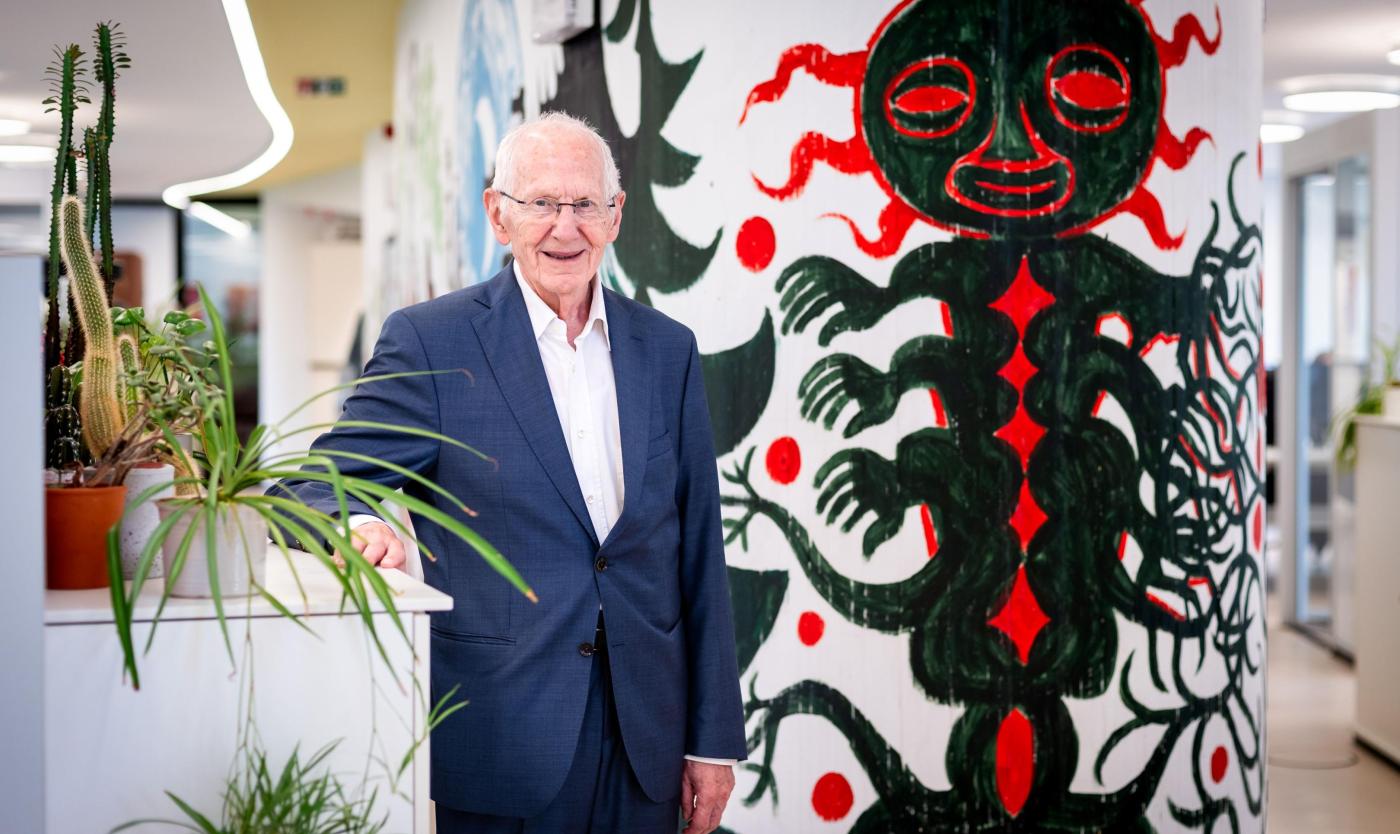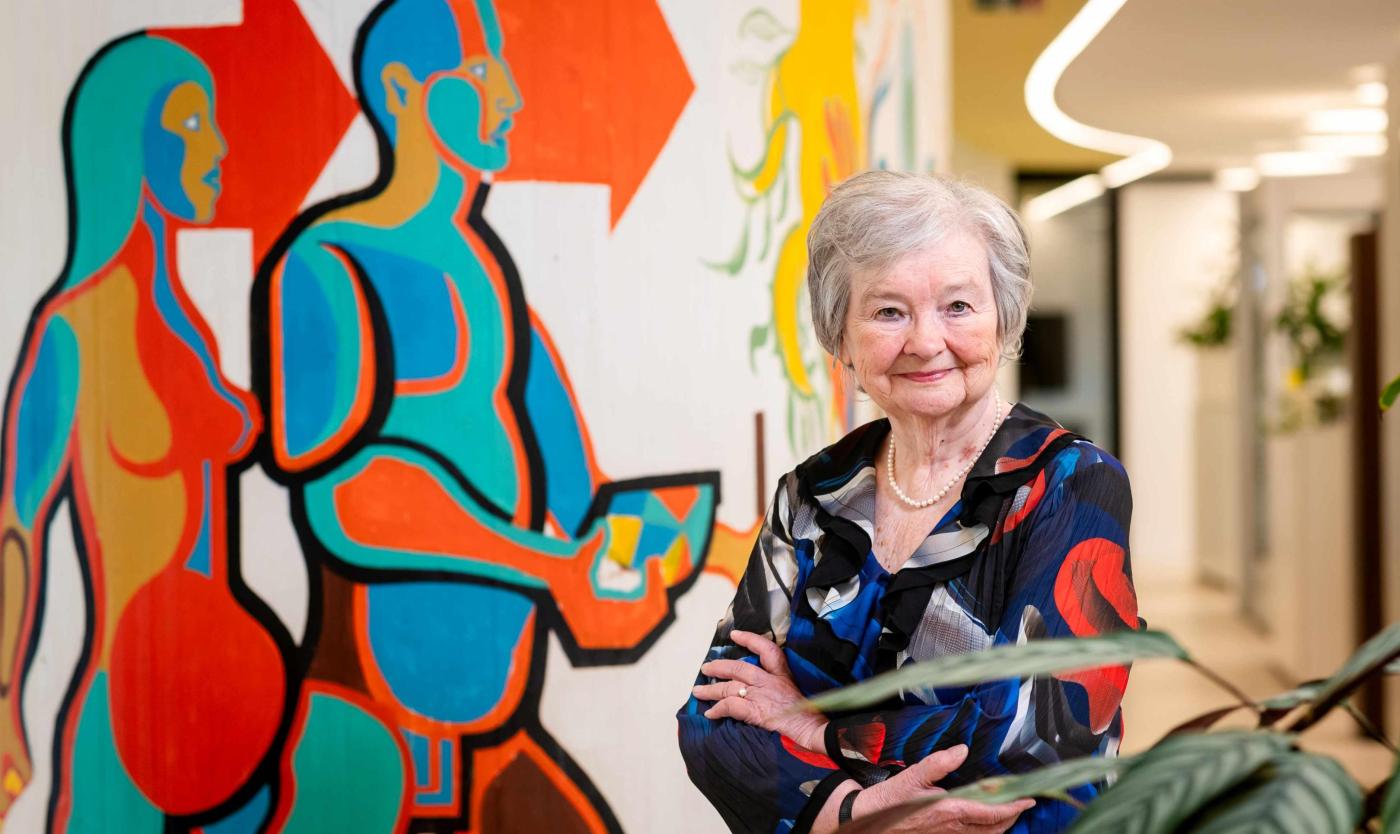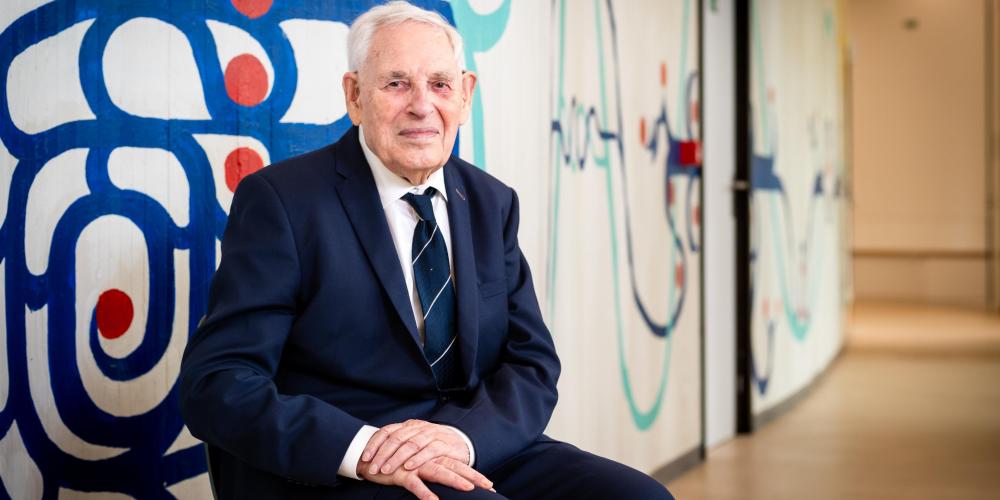
Prof. em. Sylvain Loccufier (b. 1934) is known as a homo universalis and a freethinker. After completing his studies and a PhD in Economic Sciences, he taught a wide range of economics courses at the VUB. From 1986 to 1990, he was elected rector of the university. “I am very pleased that I was able to contribute to the growth of the VUB.”
What first drew you to your field?
“Today, in secondary school, you can study one subject and later take a completely different direction. In my time, that wasn’t possible or common. I had studied economics at the atheneum, so at university I had no other option. In fact, I stayed in that discipline my whole life. I did feel the urge to do other things, but that wasn’t possible. I wouldn’t call it a passion – that word doesn’t sit well with me anyway. I’ve simply always been on the move.”
What do you see as your greatest contribution?
“That, as rector, I was able to contribute to the growth of the university, from 750 to 2,000 students. I not only made 20 school visits each year, but I also invited all the secondary schools in the area to the VUB. They came here by bus. That way, they could see with their own eyes how pleasant our campus was. Even our current king, back when he was still Prince Filip, came to have a look.”
What were the most difficult moments in your career?
“As we kept attracting more students, I eventually went to the Minister of Education to ask for subsidies for additional buildings. A staff member of the minister, who was not sympathetic towards us, responded rather threateningly: ‘It could also be that you’re facing a reduction.’ That was a bitter pill to swallow. Perhaps I was naïve to hope for the minister’s support, since I knew him very well. But even though I found his response hard to accept, I didn’t argue. Instead, the university itself took out a few loans.”
What makes a collaboration valuable to you?
“All my life I’ve done nothing but collaborate. As rector I sought out everyone, and I invited many people to my office. I recall, for instance, that the doctors were complaining a lot at one point. All the time I kept hearing: ‘this isn’t right’ or ‘we don’t have enough resources.’ From then on, I invited them every Monday for consultations. I listened to their grievances but also asked them to provide evidence to support their complaints. I conducted all those conversations myself, and in the end, we managed to reach an agreement.”
What advice would you give to young scientists?
“I would advise them to specialise. We need in-depth research, especially in today’s world. Very often the United States and China are ahead in research. Now, to be able to conduct even better research, resources are also needed. That’s why we must help our researchers take things one step further. Traditional grants don’t always suffice, and with the Scientific Support Fund – of which I was chair for many years – we aim to give such researchers an extra push.”
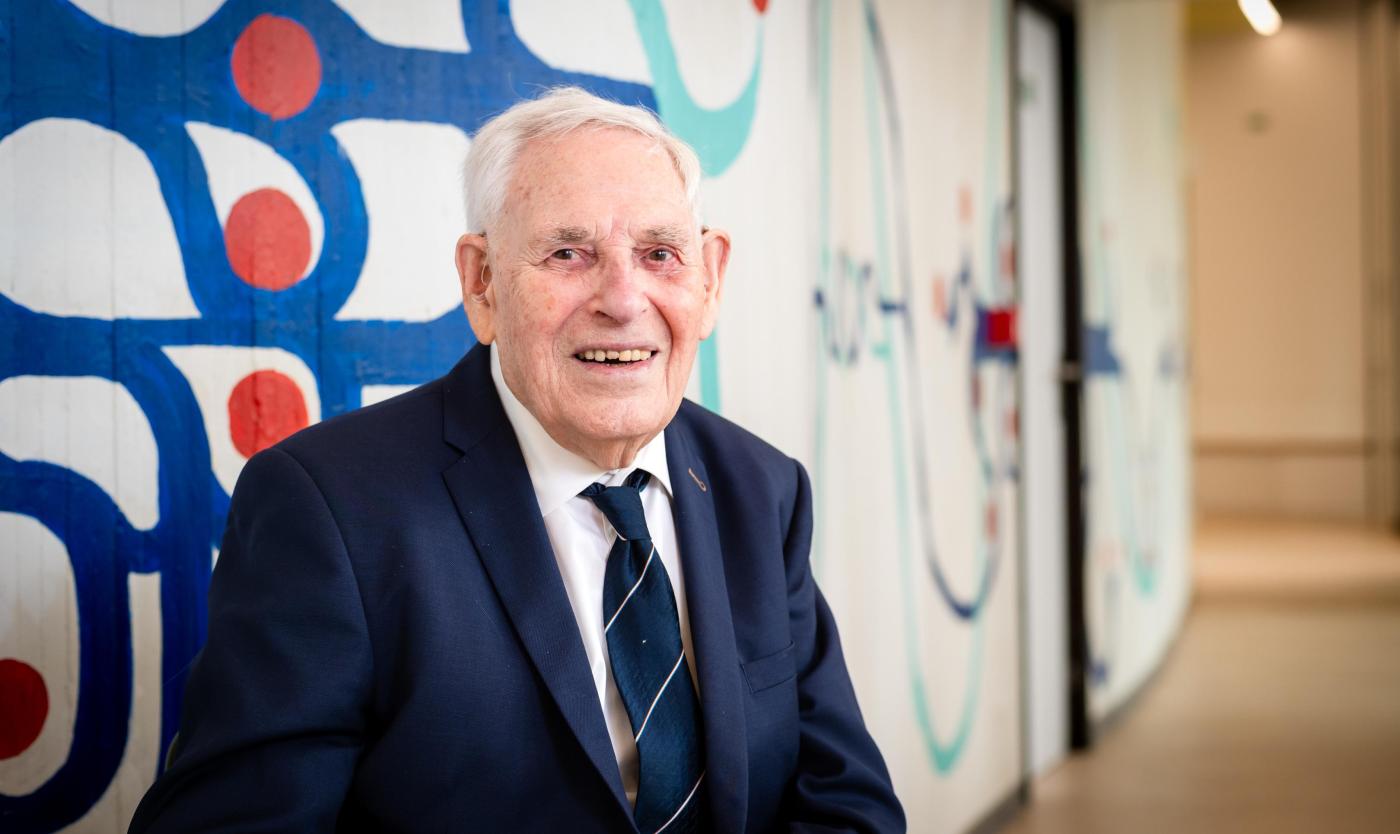
“I advise young researchers to specialise. We need in-depth research, especially in today’s world, where the United States and China are leading the way.”
About the new science awards
In 2025, VUB launched a new research awards policy in collaboration with the Scientific Support Fund. In addition to the existing Roger Van Geen Prize for exceptional scientific careers and the Ignace Vanderschueren Prize for doctoral research, both already awarded by the Vice-Rectorate for Research, seven new prizes have been created, named after pioneering figures from VUB’s history. With this policy, the university aims to recognise outstanding scientific work at every stage of an academic career.
An overview
- Hilde Bruers Award – Life Sciences (young researchers, max. 10 years of seniority)
- Paul De Vroede Award – Human Sciences (young researchers, max. 10 years of seniority)
- Ingrid Daubechies Award – Basic, Natural and Applied Sciences and Bioengineering Sciences (young researchers, max. 10 years of seniority)
- Franz Bingen Award – Basic, Natural and Applied Sciences and Bioengineering Sciences (mid-career researchers, 10–25 years of seniority)
- Liebaers–Van Steirteghem Award – Life Sciences (mid-career researchers, 10–25 years of seniority)
- Els Witte Award – Human Sciences (mid-career researchers, 10–25 years of seniority)
- Sylvain Loccufier Award – career award for researchers who combine scientific excellence with social impact in the spirit of the values of the VUB
Procedure
The Roger Van Geen, Hilde Bruers, Liebaert–Van Steirteghem, Franz Bingen and Sylvain Locufier Prizes will be awarded biennially from 2026 onwards. The Ignace Vanderscheuren, Paul De Vroede, Els Witte and Ingrid Daubechies Prizes will follow the same rhythm from 2027. The call for nominations is issued in September, with 15 December as the submission deadline. Files are evaluated by the Bureau of the Research Council or by an ad hoc committee (for the Sylvain Loccufier Prize). The Scientific Support Fund makes its final decision by 30 March, and the award ceremony takes place before 30 May.
The prize money is €5,000 for young researchers and €10,000 for mid-career researchers, in each case in the form of a working credit. The Sylvain Loccufier Prize does not involve a cash prize, but a work of art.
View the Vice-Chancellor's call for 2025(through WeAreStaff)
*For medical reasons, it was not possible to interview Prof. Emeritus Franz Bingen in time for this series.
